Benjamin Dancer's Blog, page 12
July 16, 2014
Naked Parenting
I met Leah DeCesare not long ago in a conversation over a piece I wrote about mothers of teenage daughters: Sexting at School. In that piece I focused on how difficult the mother/daughter relationship came become, using the issue of sexting to frame the discussion.
Leah is the mother of three children, two teenagers and an elementary-aged daughter. She is a doula and an early parenting and childbirth educator. All of which, in my mind, qualifiers her as an expert on kids and motherhood. Leah blogs at www.motherscircle.net about parenting.
 She also has a new book out: Naked Parenting: 7 Keys to Raising Kids with Confidence. The book strips parenting down to the bare basics, focusing on seven areas to help parents raise kids who are self-sufficient, confident, respectful and resilient. Nudity not required. It is a sensible, realistic and practical guide for parents with children of all ages. Fun, honest and easy-to-read, it provides creative tips and ideas that any parent can start using today.
She also has a new book out: Naked Parenting: 7 Keys to Raising Kids with Confidence. The book strips parenting down to the bare basics, focusing on seven areas to help parents raise kids who are self-sufficient, confident, respectful and resilient. Nudity not required. It is a sensible, realistic and practical guide for parents with children of all ages. Fun, honest and easy-to-read, it provides creative tips and ideas that any parent can start using today.
The principles of Naked Parenting provide a framework to guide decisionmaking while respecting a wide variety of parenting styles. The book offers straightforward strategies that parents can apply to issues of all kinds. In it, Leah addresses seven keys to raising confident kids: love, honesty, communication, responsibility, discipline, mistakes and gratitude.
Connect with Leah:
Twitter: @leahdecesare
Pinterest: leahdecesare
Facebook: MothersCircleLeah
The post Naked Parenting appeared first on The Old Man.
June 30, 2014
Toni Morrison Interview

I found a great radio interview with Toni Morrison, recorded a few weeks ago. She talks about her childhood, her parents. THE BLUEST EYE, BELOVED. Quite intimately.
Interview
June 28, 2014
Movie Trailer: Child of God by Cormac McCarthy

Scott Haze
I talk to a lot of people about Cormac McCarthy. It’s a rare person who is familiar with his 1973 novel Child of God. Not exactly easy reading–not on the mind nor on the spirit. The story is about Lester Ballard: a Tennessee pariah, a serial-killing necrophiliac–or put another way, a child of God.
The people who have actually read the book talk about themes of cruelty, isolation and moral degradation. Others talk about survival, as Ballard is on the run. He is quite cunning and willing to endure great sacrifice.
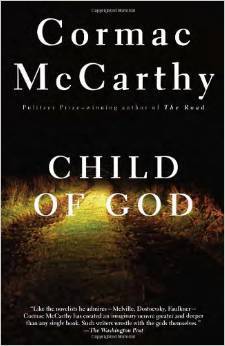 As an English teacher, I pay attention to books. Child of God is dark. So dark that Kaleb Tierce, an English teacher in Tuscola, Texas, was placed on administrative leave for allowing the story to enter into his curriculum. The guy eventually lost his job.
As an English teacher, I pay attention to books. Child of God is dark. So dark that Kaleb Tierce, an English teacher in Tuscola, Texas, was placed on administrative leave for allowing the story to enter into his curriculum. The guy eventually lost his job.
There’s a pantheon of dark characters in the McCarthy anthology, Anton Chigurh from No Country for Old Men and Judge Holden from Blood Meridian being the most well known. The evil McCarthy conjures through his characters is mythical, and that narrative power has real-world consequences. It got Mr. Tierce fired.
The trailer for Child of God is out, but I doubt I’ll see the movie. For me, the story is best experienced once. You can check the trailer out for yourself:
The post Movie Trailer: Child of God by Cormac McCarthy appeared first on The Old Man.
June 27, 2014
Child of God

Scott Haze
I talk to a lot of people about Cormac McCarthy. It’s a rare person who is familiar with his 1973 novel Child of God. Not exactly easy reading–not on the mind nor on the spirit. The story is about Lester Ballard: a Tennessee pariah, a serial-killing necrophiliac–or put another way, a child of God.
The people who have actually read the book talk about themes of cruelty, isolation and moral degradation. Others talk about survival, as Ballard is on the run. He is quite cunning and willing to endure great sacrifice.
 As an English teacher, I pay attention to books. Child of God is dark. So dark that Kaleb Tierce, an English teacher in Tuscola, Texas, was placed on administrative leave for allowing the story to enter into his curriculum. The guy eventually lost his job.
As an English teacher, I pay attention to books. Child of God is dark. So dark that Kaleb Tierce, an English teacher in Tuscola, Texas, was placed on administrative leave for allowing the story to enter into his curriculum. The guy eventually lost his job.
There’s a pantheon of dark characters in the McCarthy anthology, Anton Chigurh from No Country for Old Men and Judge Holden from Blood Meridian being the most well known. The evil McCarthy conjures through his characters is mythical, and that narrative power has real-world consequences. It got Mr. Tierce fired.
The trailer for Child of God is out, but I doubt I’ll see the movie. For me, the story is best experienced once. You can check the trailer out for yourself:
The post Child of God appeared first on The Old Man.
June 26, 2014
This World Is Hard On People
Review Link
5.0 out of 5 stars
June 25, 2014
By not a natural "Bob Bickel"
This review is from: Patriarch Run (Paperback)
The farther the reader gets into Benjamin Dancer's Patriarch Run the clearer it becomes that the author is not interested in writing just another science fiction suspense thriller that entertains readers but teaches them little or nothing of value. Dancer's novel is written by someone who has thought deeply and seriously about the story he wants to tell, and he's not afraid of taking chances, both stylistically and thematically, in telling it. There is more than enough action, suspense, and brain-taxing mystery to satisfy even readers most demanding of forceful diversion and head-spinning adventure and misadventure. However, from the outset it's abundantly clear that an author with Dancer's deeply tragic sense of life is not going to be satisfied with a novel that provides high-spirited and satisfying enjoyment, leaving the reader maybe a bit drained, but satisfied and untroubled.
Instead, Patriarch Run departs sharply from the usual import of even the most gratifying and well-crafted reader-friendly fiction by forcing us to acknowledge painful truths, as well as the most compelling and important aspects of that which we cannot know. If we're honest with ourselves, when we're at our most deeply introspective we find little that consensus would judge to be noble. We often discover that we have good reason to question our motives and even doubt our fundamental decency. Patriarch Run forces us to see this by lifting the veils of narrow self-interest and perhaps unavoidable naivete. Characters who are unambiguously heroic are hard to find in Patriarch Run, and for the most part they know it. Nevertheless, Dancer shows us that if we had the breadth of knowledge and keenness of vision to see people in the total context that gives rise to their lives, the imperfections that we find in ourselves and others would be explicable as unavoidable outcomes of all that goes into making us distinctive human beings. This kind of vision, however, is not something that comes with living in our mundane world, even if we've briefly experienced a glimpse of a preternatural alternative under extraordinary circumstances.
Patriarch Run is suitably fraught with ambiguity and uncertainty. We meet characters whose commitment to a courageously patriotic life, something to which they give their all and repeatedly risk everything, learn that patriotism, as they have understood it, may set one on a fool's errand, one that causes harm and reinforces injustice rather than benefiting citizens at large. However compelling the evidence, this is a hazardous turn for an author to take in our hyper-politicized environment, especially when he finds a rough equivalence among self-promoting big governments throughout the world. It's to the author's credit that he knows that even good people with the most laudable objectives can't transform an impersonal organizational behemoth into something that we can stand by, proud and protected. Little wonder that deciding what is the right thing to do becomes so muddled in philosophical and practical difficulties in Patriarch Run. Who knows? Maybe the Neo-Malthusian catastrophe so ingeniously pursued by Jack, the father of the novel's protagonist, is the most humane way to go.
We all know that pain is a part of life, but Dancer's novel forces us to acknowledge it in inescapably personal ways that I found unnerving. The killing of a bison for what may or may not be a good reason, is such a commonplace sort of event in our carnivorous world that my almost tearful response to the head-shot death of the leader of the herd seems silly. But in Patriarch Run, death is not a remote abstraction, an unnoticed part of everyday life. It's real, painful, and deeply sad. The exchange of gunfire between Billy, the protagonist, and Jack is perfectly explicable in ways that all can see. But it dramatically emphasizes the heart-rending confusion that is an unavoidable part of life as we live it. It also illustrates the insane predicaments that can both unite and separate a father and son in a contemporary dialectic of kinship.
In a real sense, Billy has two fathers, one thoroughly admirable to the end, and the other a denatured victim of the world he sought to set right. It seems likely that if their roles had been reversed early on, they would have traded places, one becoming a contextually determined approximation of the other. Does Billy see this? And what will he make of it? Questions raised by this truly fine novel.
Help other customers find the most helpful reviews
Was this review helpful to you? Yes No
Report abuse | Permalink
Be the first person to comment on this review.
June 25, 2014
A Ghost Among Spies

Edwin P Wilson
Ed Wilson was a ghost among spies. He served in the Special Operations Division of the CIA setting up front companies, which were used to ship arms and other supplies around the world.
What’s interesting about Ed Wilson is that the details of his career at the CIA are so secretive that there are only a few people alive who really know the truth about his identity. And they’re not talking. Wilson officially retired from the CIA in 1971, but after his “retirement” he amassed a fortune running the front companies he had originally established for the Agency, which meant he also owned strategic properties all over the globe. Wilson was known for his opulent lifestyle, swanky parties and extravagant gifts. When the Arms for Libya program was exposed in the early 1980s, Wilson’s secret identity was used against him.
Ed Wilson claimed he was working for the CIA, the Agency denied this, and he went to prison for over two decades.

Billy Waugh
I was introduced to the controversial figure of Ed Wilson in Billy Waugh’s autobiography Hunting the Jackal: in which Waugh details his own life-long exploits in covert operations. Waugh, a legendary badass, retired from the military in 1972. He was working for the United States Postal Service in 1977 when Ed Wilson, on behalf of the CIA, recruited him to help train a Libyan special forces unit.
 Billy Waugh writes with specific detail about the tradecraft Ed Wilson employed to arrange their clandestine meeting. In that meeting, Wilson protected the CIA by hiding behind a front company: Consultants International.
Billy Waugh writes with specific detail about the tradecraft Ed Wilson employed to arrange their clandestine meeting. In that meeting, Wilson protected the CIA by hiding behind a front company: Consultants International.
In my story Patriarch Run, Ed Wilson used similar tradecraft in his attempt to recruit Jack in the struggle against the leftist Sandinista government, a project on which the historical Wilson worked.
During the fictional meeting, Jack was frustrated that “American power was so busy creating tomorrow’s crisis with today’s intervention.”
One of the units trained by Ed Wilson’s historical operatives in Libya was the Popular Front for the Liberation of Palestine-General Command (PFLP-GC), which was led by Ahmad Jibril, the suspect behind the 1988 bombing of Pan Am 103 over Lockerbie, Scotland.
Ed Wilson was eventually convicted for selling weapons to Muammar Qaddafi. Among other crimes, Wilson offered the dictator plans for making a nuclear bomb. Wilson claimed he was working for the CIA, gathering intelligence about Libya’s nuclear weapons program.
Jack, in Patriarch Run, is sent to Tehran to keep Qaddafi from acquiring a nuclear device.
One of the details that makes Ed Wilson a sympathetic character is that most of his twenty-two years in prison were spent in solitary confinement. Wilson’s multiple convictions were overturned in 2003, after it came out that the United States Department of Justice and the CIA had covered up evidence.

Edwin P Wilson
The Judge wrote: “Because the government knowingly used false evidence against him and suppressed favorable evidence, his conviction will be vacated. America will not defeat Libyan terrorism by double-crossing a part-time informal government agent.”
Ed Wilson was freed in 2004 to live on a monthly $1,080 social security check. He died on 10 September 2012. He was eighty-four years old.
The post A Ghost Among Spies appeared first on The Old Man.
June 22, 2014
The Road
Some experien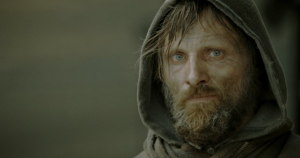 ces are best lived once. I feel that way about The Road by Cormac McCarthy.
ces are best lived once. I feel that way about The Road by Cormac McCarthy.
After reading an article about films best seen once, I felt compelled to confess that I have never seen the film version of The Road, nor will I. Once with that story is enough.
That book broke me. It broke me as a father, as a man. It broke me in ways I cannot articulate. So much so that I warn my friends NOT to read it. The story is that good.
The pain The Road inflicted on me became physical. I couldn’t sleep. It twisted my gut. Afterwards, I felt like I had lost something. My soul felt wounded.
The Road affected me so much because I could not deny its truth.
Let me qualify the previous statement: plenty of ideas in the story don’t hold up to scrutiny. The most egregious being the notion that after a great calamity, the only surviving organism on earth could be humankind. No plants. No rats. No life other than people. Not even beetles to recycle human remains.
Rather, it was the truth of the human condition that was so unassailable in the narrative. The Road made me look squarely at it. Every line of the story was a syllogism, leading to the inescapable conclusion. There are two types of people: those who would kill you and eat you if their life depended on it and those who would rather die.
Let the crisis unfold long enough and there will only be one type of person left.
I began looking at my friends, the customers in the grocery store differently. By the time I had finished The Road, I had quietly observed the people in my life and felt like I could discern who was whom.
It still hurts.
The post The Road appeared first on The Old Man.
June 18, 2014
What Happens When We Fail?
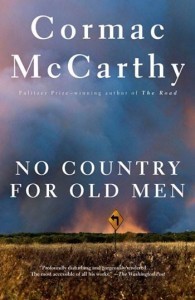
“You never know what worse luck your bad luck has saved you from.”
― Cormac McCarthy, No Country for Old Men
I came across this sentence in this book some years ago. Seemed simple enough. But I couldn’t stop thinking about it. It haunted me. There are five or six sentences in the world like that. It changed my life.
I don’t know about you, but nothing has come easy for me. It’s all worked-for. And that work involves embarrassing failures. You just get up–cry or laugh–and work at it again.
I remember the sentence as a tool against shame. The difference between me and my younger self is that I expect failure. And, more importantly, there’s grace for it.
I’ve seen people close themselves off to the truth, to self-improvement, to growth. Close themselves off from viewing who they are–the magnitude of their own failure–for the power of the shame that comes with it.
I don’t know anybody who couldn’t use a little grace in their lives.
When things go wrong for me. When I find myself face-to-face with the failure I’ve manufactured out of the short-sightedness of my own will, I try to remember what Sheriff Ed Tom Bell taught me. He is one of the most important mentors in my life. More real to me than real people.
“You never know what worse luck your bad luck has saved you from.”
To me, it’s a statement about grace. If we don’t offer grace to ourselves, who will?
The post What Happens When We Fail? appeared first on The Old Man.
June 14, 2014
No Country For Old Men
"You never know what worse luck your bad luck has saved you from.”
― Cormac McCarthy, No Country for Old Men

June 10, 2014
The Making of a Spy
[image error] It took years of research to create Jack, the secret agent man, in my literary thriller Patriarch Run. Four years and too many books to mention here (the book covers illustrated in this post represent a fraction of the research). The original concept of the character was Billy Waugh, a legendary special forces operator and Vietnam veteran. About the only thing that stuck with the final character from Waugh’s life was Vietnam, that and Waugh’s relationship to Cambodian Colonel Um Savuth. Although Waugh did become somewhat of spook in later life, working for the CIA, I decided early that Jack wasn’t going to be tied to that agency.
It took years of research to create Jack, the secret agent man, in my literary thriller Patriarch Run. Four years and too many books to mention here (the book covers illustrated in this post represent a fraction of the research). The original concept of the character was Billy Waugh, a legendary special forces operator and Vietnam veteran. About the only thing that stuck with the final character from Waugh’s life was Vietnam, that and Waugh’s relationship to Cambodian Colonel Um Savuth. Although Waugh did become somewhat of spook in later life, working for the CIA, I decided early that Jack wasn’t going to be tied to that agency.
After Waugh, I studied Richard Marcinko. I started to think of ways to build the Rogue Warrior into Jack’s Character. Except that Jack’s a bad ass, I can’t say much of Marcinko stuck. I kept exploring the idea of Jack being an operator in Delta Force, the Navy SEALs or the Green Berets, but in the end, I decided against all that. I decided that Jack was going to be a spook among spooks. He wasn’t going to belong to a known agency because his agency would be too black to be known.
The research into America’s special forces community provided a detailed history of America’s wars since Vietnam, including the secret wars: the wars in which Jack plays a roll. Although Jack is good at what he does, he is critical of his country’s blunders, especially the political missteps of the intelligence community. As he puts it, “creating tomorrow’s crisis with today’s intervention.”
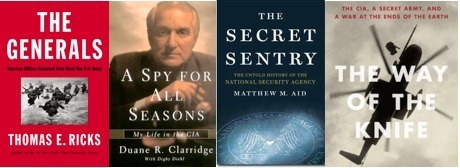 I spent a lot of time researching the Iranian Revolution, trying to decide what Jack’s role would be in the lead up to Operation Eagle Claw, the disastrous rescue mission that killed eight service men and left two American aircraft in the Iranian desert in 1980. In the end, I decided that Jack would be the voice of reason inside Iran. I had learned a lot about Howard Hart, the CIA station chief during the Iranian Revolution, and I decided to let Jack voice some of Hart’s concerns, concerns that fell upon deaf ears in Washington.
I spent a lot of time researching the Iranian Revolution, trying to decide what Jack’s role would be in the lead up to Operation Eagle Claw, the disastrous rescue mission that killed eight service men and left two American aircraft in the Iranian desert in 1980. In the end, I decided that Jack would be the voice of reason inside Iran. I had learned a lot about Howard Hart, the CIA station chief during the Iranian Revolution, and I decided to let Jack voice some of Hart’s concerns, concerns that fell upon deaf ears in Washington.
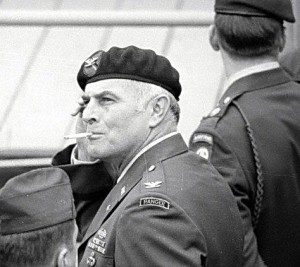 The research into Delta force and Operation Eagle Claw brought my attention to Colonel Charles Alvin “Charlie” Beckwith, who is credited for the creation of Delta Force. The Colonel, Jack’s boss in Patriarch Run, began as Beckwith then evolved into a character based loosely on the historical man.
The research into Delta force and Operation Eagle Claw brought my attention to Colonel Charles Alvin “Charlie” Beckwith, who is credited for the creation of Delta Force. The Colonel, Jack’s boss in Patriarch Run, began as Beckwith then evolved into a character based loosely on the historical man.
After his mission in Iran, Jack finds himself entangled with the  Nicaraguan Contras. He deftly negotiates a recruitment meeting with Ed Wilson, a historical figure who operated as a front man for the CIA.
Nicaraguan Contras. He deftly negotiates a recruitment meeting with Ed Wilson, a historical figure who operated as a front man for the CIA.
Jack foresees the conflict between America and Al-Qaeda during the Soviet war in Afghanistan. And he predicts the collapse of the Soviet Union, positioning himself in East Germany as the wall comes down.
By the 1990s Jack has had enough. He steps out of his secret life and pursues a relationship with Rachel. Billy is born. The family disappears into the Colorado mountains. But the Colonel finds them. Jack is called back into service right before the Battle of Mogadishu.
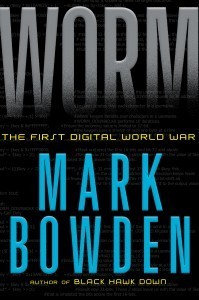 By the turn of the millenium, Jack is aware of the cyber threat to national security, a topic I wrote about in a previous post. Jack finally uses this knowledge in 2010 to save, by quite controversial means, the human race.
By the turn of the millenium, Jack is aware of the cyber threat to national security, a topic I wrote about in a previous post. Jack finally uses this knowledge in 2010 to save, by quite controversial means, the human race.
 Excerpt from Patriarch Run
Excerpt from Patriarch Run
Iran, 1979
“Can you make it to the meeting?”
“Yes.”
“Do you need anything from me?”
“Yes, but it’s not related.” Jack had been mulling it over: the students, what he saw on the street. It was alarming.
“What is it?”
“This whole thing is about to go. You’ve got to tell State to get their people out of Tehran.” It wasn’t just Iran, it was the whole region. Jack had been to the Hindu Kush, and he didn’t like what he saw in the mountains of Afghanistan and Pakistan either.
“It’ll be OK.”
“For who? The Ayatollah Khomeini? These kids, I’ve seen the fervor in their eyes.”
“Jihad.”
“Yes. And Washington doesn’t have a clue as to what the hell that is.”
There was only one play in the American foreign policy playbook. Find a strong man to oppose the communists. Stand him up. And close your eyes to the consequences. That strategy was unraveling in Tehran.
“I got word from the CIA’s Iran branch chief. He assured me that the situation would only get explosive if the Shah was let into the United States.”
“And that comforts you? Which assumption are you making: that Kissinger is not that stupid or that he doesn’t have that type of influence with the president?”
“Point taken.”
“Can you name one prediction the CIA has gotten right in the last thirty years? Their only claim to fame was the installation of the Shah, himself, which, I don’t have to remind you, was the antecedent to the goat-fuck we’re in now.”
“They got Howard Hart in there as station chief, don’t they? He’s a good man.”
“Yes, he is. He told me headquarters buried his report.”
“What else did he tell you?”
“That Tehran is going to explode. That a group of the ayatollah’s thugs almost executed him in January. He shot his way out of a second attack early this morning.”
The incompetence in Washington was staggering. American intelligence could launch satellites. It could use them to count tanks on the ground, but for all its apparatus, for all its money, it could not collect any meaningful information about its enemies.
The curtain had already been dropped in Iran. Jack was looking ahead to the stage of Afghanistan, where he saw a fresh set of performers acting out the same play.
Because America did not understand its enemy’s intentions, because it did not understand the vanity and the avarice of the Politburo, the script was certain to play itself out around the world. It was simple. The solution was so simple. But nobody in Washington wanted to grasp the fact that the Soviet system of government was beyond corrupt: the Kremlin was determined to defeat itself.
“I’ll pass the word to Vance, but don’t hold your breath.”
“At least, we’ll know we tried.”
“Once you finish your business,” the Colonel ordered, “get out.”
***
Jack was on foot in the Nazi Abad district of Tehran. He had two hours. The meeting he said he would attend was located across town in the affluent Elahieh district. Peng Chuanzeng, a Chinese nuclear physicist, would be linking up with an agent working for the Libyan intelligence service in a restaurant on Fereshteh Street at noon. Jack’s business was to guarantee that there would be no exchange of nuclear secrets.
What made the operation unique was that the Chinese were feeding him the intelligence. No government on Earth was willing to help Muammar Gaddafi build a nuclear weapon. He had tried them all.
Moreover, Peng Chuanzeng was a scourge to the Chinese Academy of Sciences. Not only did he peddle in unauthorized nuclear secrets: he sidelined in human traffic. Since the revolution, the market in Iran paid a premium for young boys. Jack was presented with photographs of the rogue physicist in Dhaka, where he spent the weekend. Accompanying Chuanzeng on the flight to Tehran was a a nine-year-old, Bangladeshi boy.
The restaurant on Fereshteh Street was about fourteen miles to the north. To make the meeting on time Jack needed transportation, something that could also get him to the boat waiting in the Persian Gulf, six hundred miles away.
Jack was confident that a solution would present itself.
***
The way north was blocked by a crowd in the street. Although the assembly was listening intently, Jack, at the back of the crowd, could neither see nor hear the orator. He stepped into the throng.
What he saw in the eyes of the men around him was the same thing he saw in the eyes of the mujahideen fighting the communists in the mountains. Left to itself, the religious contagion wasn’t dangerous. But if provoked…
That is what frightened him.
Not only was Washington oblivious to the threat, its national security bias was bent toward provocation. Compared to the conviction of these college students, other security concerns were myopic. They were misguided.
Jack checked the time. He had a half hour. He was sorry he couldn’t stay.
A man on a motorcycle was looking for a way through the crowd. He gave up and began to turn the bike around…until he became interested in what was happening and cut the engine.
“How much will you take for the motorcycle?”
“Excuse me?”
“How much will you take?”
“I don’t know what it’s worth. Besides it’s not for sale.”
Jack pulled a roll of US currency from his jacket.
“What’s this?”
“Hold out your hand.”
The man wrinkled his nose.
“Like this,” Jack took the man’s wrist, pulled it between them and started stacking hundred dollar bills in his palm.
The Iranian’s mouth opened. He muttered something unintelligible.
Jack kept counting bills into his hand.
The man looked around to see if anybody was watching.
Jack counted out eleven hundred dollars.
“OK, that’s enough.”
Jack studied him for several seconds, assessing his astuteness, “Tell them it was stolen.”
***
Jack started the bike before the target got out of the taxi. From where the taxi was parked, the target would have about thirty yards of sidewalk to cover before he could reach the door to the restaurant.
Jack approached from behind. He rode up onto the sidewalk. To avoid being hit, a man pressed himself against the facade of a building. Another leapt into the street.
When he heard the shouts from the frightened pedestrians behind him, the target spun around.
Jack swung the bike sideways and skidded to a stop.
“Who are you?” Peng Chuanzeng asked in Persian.
Jack looked him in the eye and did not answer.
“Who are you?” This time he asked in English.
Jack thumbed off the safety as he drew the M1911A1 pistol from a shoulder holster. It was the same pistol he modified and fought with nine years earlier in Vietnam.
Chuanzeng saw the .45 caliber muzzle and turned his head. It’s what they all did. There had only been two targets who did not flinch at their own execution. One of them was a woman.
His voice cracked, “Please.”
“You don’t strike me,” Jack was unhurried in his delivery, “as a man who, when given the opportunity, has shown mercy.”
Chuanzeng’s eyes were squeezed tight. Despite all his mathematical training, his profound understanding of momentum, the physicist lifted both hands and pressed them together in order to shield his head, as if a few inches of flesh and bone could deter the speeding mass of the bullet.
Jack wasn’t thinking about nuclear secrets. He wasn’t thinking about safeguarding democracy. He was thinking about a nine-year old boy.
The voice was high pitched and barely audible, “Please don’t.” The urine spread down the physicist’s slacks, over his shoes and onto the pavement.
Jack had time to see the hole bored through the palms before the target crumpled to the pavement.
***
When Jack turned to the sound of screeching tires and saw the muzzle flashes, he was able to locate the revolver extended from the vehicle’s open window, but not the shooter, nor the vehicle that transported the threat.
Jack’s visual world narrowed even further until it was composed of only two items–both of which he saw in high definition. The first was the front sight of his own weapon: he could see the horizontal serrations milled into the blued steel. The other item he was aware of was the muzzle of the revolver. It couldn’t have been more than a .38, but the black muzzle seemed huge and occupied his entire visual field.
A gun fight had a way of distorting reality. Time didn’t unfold in its regular procession. Moreover, the physical world often became other than what it, moments ago, was.
Jack could not hear the reports, neither his weapon nor his enemy’s. But he could hear the screaming of the civilians around him. He could hear his ejected brass tinkling against the windshield of the parked car on the street. The front sight of his weapon kept returning to his enemy’s muzzle, and he kept resetting then pulling the trigger.
Jack ejected the empty magazine, pushed a new magazine home and released the slide without consciously thinking about the action of his hands.
Then he finally saw the sedan, and the Libyan driving it, just as it crashed head-on into the oncoming truck.




